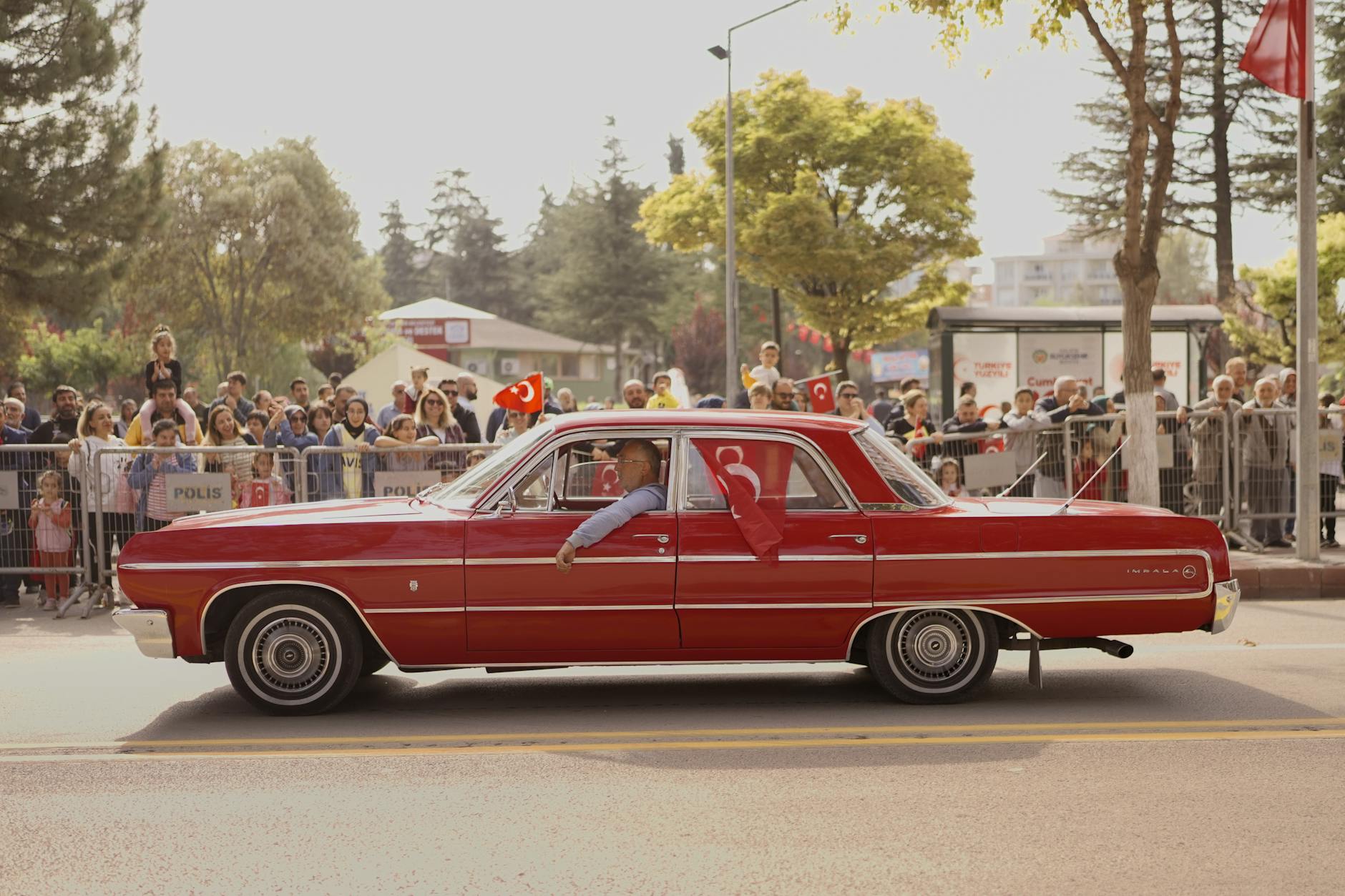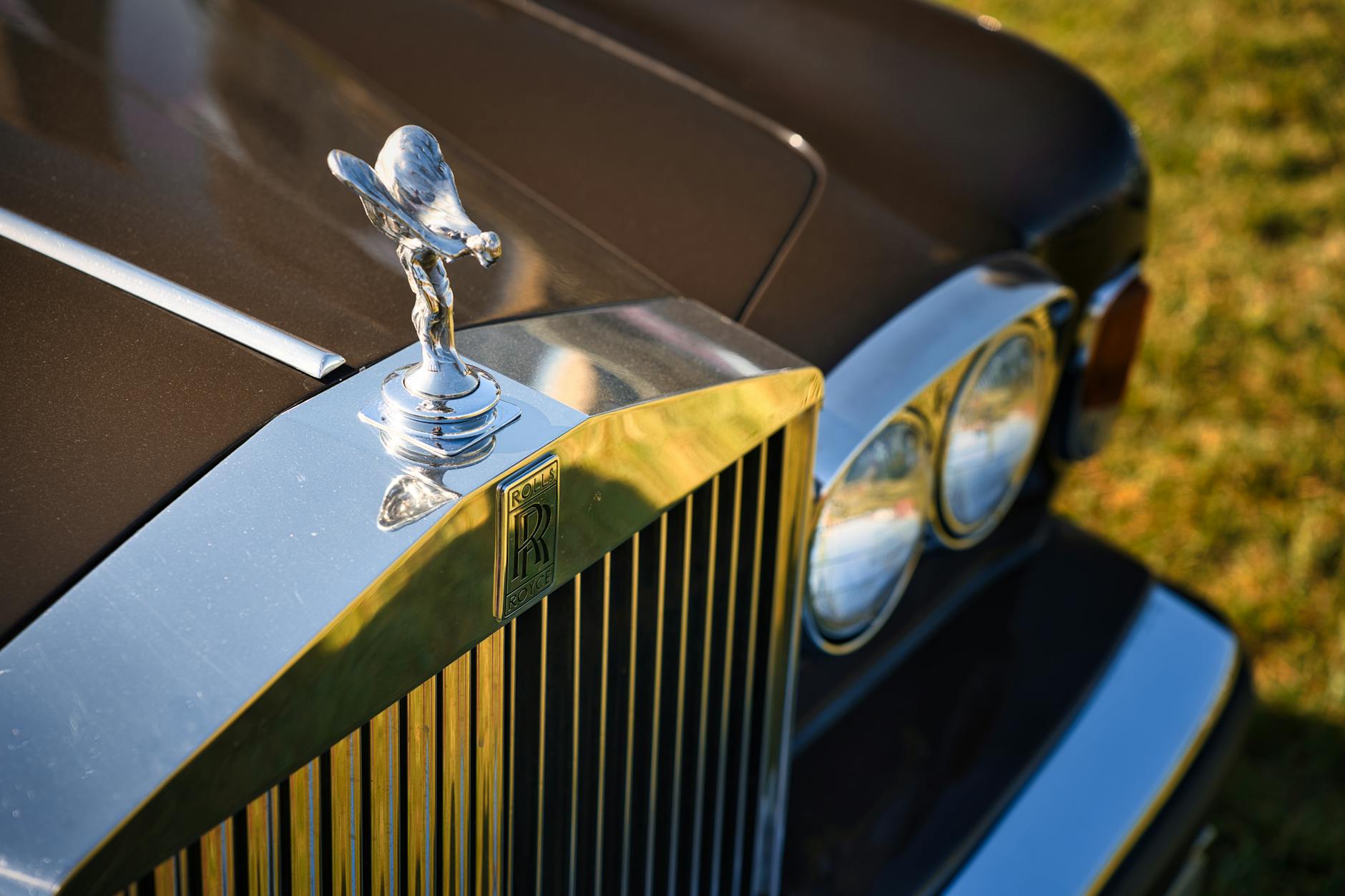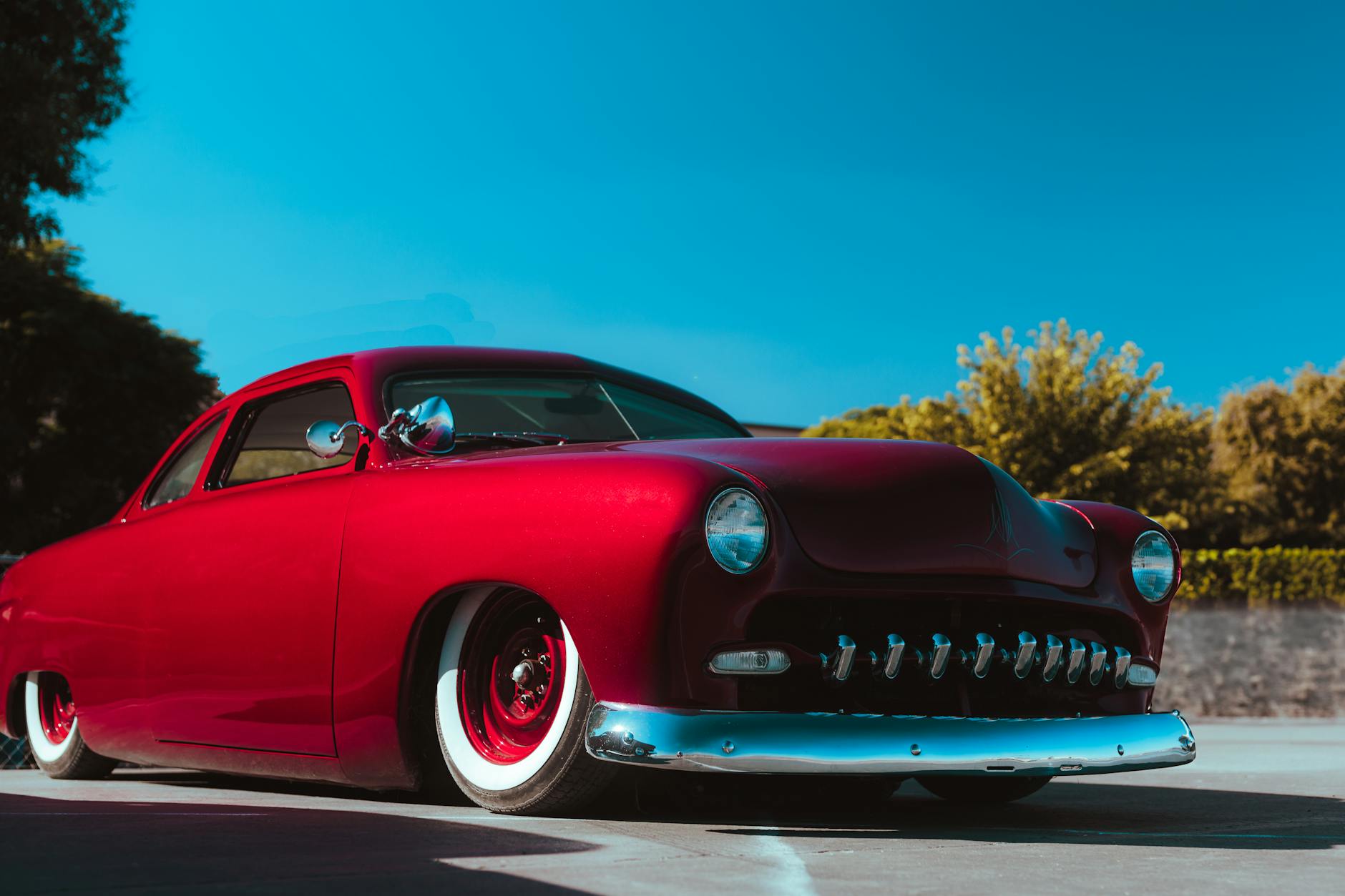Introduction to Commercial Motor Insurance
Definition and Scope of Commercial Motor Insurance
Commercial motor insurance, also known as commercial auto insurance, provides coverage for vehicles used for business purposes. This type of insurance is designed to protect businesses from financial losses resulting from accidents, theft, or other incidents involving company vehicles. Commercial motor insurance typically covers a range of vehicles, including cars, trucks, vans, and specialty vehicles used for business activities.
The scope of commercial motor insurance can vary depending on the specific needs of the business. Policies may include coverage for liability in case of injuries or property damage caused by a company vehicle, as well as coverage for physical damage to the vehicle itself. Additional coverage options may be available for things like cargo, equipment, or employees who are injured in a vehicle accident.
Businesses of all sizes and industries can benefit from commercial motor insurance. Whether a company operates a single vehicle for occasional business use or maintains a fleet of vehicles for daily operations, having the right insurance coverage is essential for protecting the business and its assets. By investing in commercial motor insurance, businesses can mitigate the financial risks associated with vehicle accidents and ensure continuity of operations in the event of unexpected events.
Importance of Commercial Motor Insurance for Businesses
Commercial motor insurance plays a vital role in safeguarding businesses from financial risks associated with operating a fleet of vehicles. For businesses that rely on transportation as a core component of their operations, having commercial motor insurance is not just a legal requirement in many jurisdictions, but also a strategic decision to protect the business from potential liabilities.
One of the key reasons why commercial motor insurance is crucial for businesses is that it provides financial protection in case of accidents involving company vehicles. Without adequate insurance coverage, a business could face significant financial losses from repairing or replacing vehicles, covering medical expenses for injured parties, and legal costs resulting from lawsuits.
Moreover, commercial motor insurance helps businesses comply with legal requirements related to vehicle insurance. Operating vehicles without proper insurance coverage can lead to penalties, fines, or even the suspension of business operations. By having the right commercial motor insurance policy in place, businesses can ensure compliance with local regulations and protect their operating licenses.
In addition to financial protection and legal compliance, commercial motor insurance also plays a key role in safeguarding business assets. Vehicles used for business purposes represent a significant investment, and any damage or loss can have a direct impact on the company’s bottom line. With the appropriate insurance coverage, businesses can mitigate the risks associated with vehicle-related incidents and protect their assets from unforeseen events.
Finally, commercial motor insurance provides peace of mind for business owners by offering a layer of protection against the unpredictable nature of accidents and liabilities. Knowing that their vehicles and operations are covered by insurance can help business owners focus on growing their business without constantly worrying about the potential financial repercussions of unforeseen events.
In conclusion, the importance of commercial motor insurance for businesses cannot be overstated. From financial protection and legal compliance to asset safeguarding and peace of mind, commercial motor insurance is a critical tool for businesses that rely on vehicles for their operations. By investing in the right insurance coverage, businesses can mitigate risks, ensure continuity of operations, and protect their financial interests in the event of accidents or unexpected incidents.
Types of Coverage in Commercial Motor Insurance
Liability Coverage
Liability coverage is a fundamental component of commercial motor insurance, providing protection in the event that your business is held responsible for causing harm to others while operating a vehicle. This coverage helps pay for bodily injury and property damage expenses incurred by third parties, such as medical bills for injuries sustained by another driver or repairs to a vehicle that was damaged in an accident involving your commercial vehicle.
In many jurisdictions, liability coverage is mandatory for all commercial vehicles to ensure that businesses can meet their financial obligations in case of accidents. The coverage limits for liability insurance can vary based on the type of vehicle, the business operations, and other factors. It is crucial for businesses to carefully assess their liability coverage needs to ensure they have adequate protection.
Moreover, liability coverage typically includes legal defense costs in case your business is sued due to an accident involving one of your commercial vehicles. This aspect of the coverage can be particularly valuable, as legal expenses can quickly escalate in the event of a lawsuit.
When selecting liability coverage for your commercial motor insurance policy, it is essential to consider factors such as the nature of your business, the types of vehicles in your fleet, and the potential risks associated with your operations. Working with an experienced insurance agent or broker can help you determine the appropriate level of liability coverage to safeguard your business assets and ensure financial protection in case of unforeseen incidents.
Physical Damage Coverage
Physical damage coverage in commercial motor insurance provides protection for the vehicles owned by a business. This type of coverage typically includes damages resulting from collisions, theft, vandalism, fire, and other non-collision incidents. It is important for businesses to consider the value of their vehicles and the potential cost of repairs or replacement when selecting the appropriate level of physical damage coverage.
Having physical damage coverage can be particularly beneficial for businesses that rely heavily on their vehicles for operations. In the event of an accident or other covered incident, this coverage can help minimize financial losses and ensure that the business can continue to operate without significant disruptions. It is important for business owners to carefully review the terms and conditions of their policy to understand what is covered and any limitations that may apply.
Businesses may have the option to choose between actual cash value (ACV) coverage and replacement cost coverage for their vehicles. ACV coverage typically pays out the current market value of the vehicle at the time of the loss, taking depreciation into account. On the other hand, replacement cost coverage may provide funds to replace the vehicle with a new one of similar make and model, without factoring in depreciation.
When considering physical damage coverage for commercial motor insurance, businesses should evaluate their specific needs, the value of their vehicles, and the level of risk they are willing to assume. By selecting the right level of coverage, businesses can protect their assets and ensure that they are financially prepared in the event of unforeseen circumstances.
Comprehensive Coverage
Comprehensive coverage is a vital component of commercial motor insurance, providing protection for a range of non-collision related incidents. This type of coverage helps safeguard your business vehicles from risks like theft, vandalism, fire, natural disasters, and other unforeseen events.
One of the key benefits of comprehensive coverage is its ability to cover damages that are not caused by a collision with another vehicle or object. This means that if your business vehicle is stolen or damaged in a fire, for example, comprehensive coverage can help cover the repair or replacement costs.
It’s important to note that comprehensive coverage typically has a deductible, which is the amount you are responsible for paying before your insurance coverage kicks in. You can choose a deductible amount that aligns with your budget and risk tolerance, keeping in mind that higher deductibles usually result in lower premiums.
When determining the appropriate level of comprehensive coverage for your commercial vehicles, consider factors such as the value of your vehicles, the likelihood of non-collision related risks in your area, and your overall risk management strategy. By including comprehensive coverage in your commercial motor insurance policy, you can enhance the protection of your business assets and minimize financial losses in the event of unexpected incidents.
Collision Coverage
Collision coverage is a crucial component of commercial motor insurance that provides protection for a business’s vehicles if they are involved in a collision with another vehicle or object. This type of coverage helps pay for the cost of repairing or replacing the insured vehicle, regardless of who is at fault in the accident.
Typically, collision coverage is not mandatory by law, but it is highly recommended for businesses that rely on their vehicles for daily operations. Without collision coverage, a business may have to bear the full cost of repairing or replacing a vehicle damaged in a collision, which can be financially burdensome.
Collision coverage usually involves a deductible, which is the amount the policyholder must pay out of pocket before the insurance coverage kicks in. The higher the deductible, the lower the insurance premium is likely to be. Businesses should carefully consider their financial situation and risk tolerance when choosing a deductible amount for collision coverage.
It is important for businesses to review the terms and conditions of collision coverage carefully to understand what is and is not covered under the policy. For example, certain types of collisions, such as those caused intentionally or while the driver is under the influence of drugs or alcohol, may not be covered by collision insurance.
Overall, collision coverage provides businesses with financial protection and peace of mind knowing that their vehicles are protected in the event of a collision. By including collision coverage in their commercial motor insurance policy, businesses can mitigate the financial risks associated with vehicle accidents and ensure continuity in their operations.

Uninsured/Underinsured Motorist Coverage
Uninsured/Underinsured Motorist Coverage is an essential component of commercial motor insurance, providing protection for businesses in scenarios where they are involved in accidents with drivers who lack insurance or have insufficient coverage. This type of coverage steps in to cover the costs that the at-fault driver’s insurance would typically be responsible for, offering a safety net for businesses facing financial losses due to uninsured or underinsured motorists.
In the unfortunate event of an accident with an uninsured or underinsured driver, this coverage can help cover medical expenses, property damage, and other costs that the other party would otherwise be liable for. It ensures that businesses are not left bearing the full financial burden of such incidents, which can have significant implications on their operations and financial stability.
Having Uninsured/Underinsured Motorist Coverage as part of a commercial motor insurance policy is crucial for businesses looking to safeguard themselves against unforeseen circumstances on the road. It provides an extra layer of protection and ensures that businesses can continue to operate smoothly even in situations involving financially irresponsible drivers. By including this coverage in their policy, businesses can mitigate risks and have peace of mind knowing that they are adequately protected in all driving scenarios.
Factors Affecting Commercial Motor Insurance Premiums
Type of Vehicles Insured
The type of vehicles insured is a crucial factor that significantly affects commercial motor insurance premiums. Insurance providers take into consideration various aspects of the vehicles being insured to determine the level of risk involved and thus the premium costs. Here are some key points related to how the type of vehicles insured influences insurance premiums:
-
Vehicle Value: The value of the vehicles being insured is a major factor in determining premiums. More expensive vehicles will generally cost more to insure due to higher repair or replacement costs in case of damage or theft.
-
Vehicle Size and Weight: The size and weight of commercial vehicles can impact insurance premiums. Larger and heavier vehicles may cause more damage in an accident, leading to higher premiums.
-
Vehicle Usage: The primary use of the vehicles, whether for transportation of goods, passengers, or for commercial deliveries, will also affect premiums. Vehicles used for more high-risk activities may have higher premiums.
-
Safety Features: The presence of safety features such as airbags, anti-lock brakes, and stability control systems can lead to lower premiums as they reduce the risk of accidents or injuries.
-
Age of Vehicles: The age of the vehicles can impact premiums, with older vehicles typically costing less to insure than newer models due to lower replacement costs.
-
Modifications or Customizations: Any modifications or customizations to the vehicles can affect premiums. Added features that enhance safety or security may lead to lower premiums, while modifications that increase the risk of accidents could result in higher costs.
-
Vehicle Condition: The overall condition of the vehicles, including maintenance records and inspection history, can influence premiums. Well-maintained vehicles may be seen as lower risk and could result in lower insurance costs.
-
Vehicle Classifications: Different types of vehicles fall into specific classifications, such as trucks, vans, or buses. These classifications can impact premiums based on historical claims data for each vehicle category.
By assessing these factors related to the type of vehicles insured, businesses can work with insurance providers to determine the most suitable coverage options that balance protection needs with premium costs. It is essential for businesses to provide accurate information about their vehicles to ensure they receive appropriate commercial motor insurance coverage at competitive rates.
Driving Records of Insured Drivers

The driving records of insured drivers play a significant role in determining the premiums for commercial motor insurance policies. Insurance companies consider the driving history of individual drivers to assess the level of risk they pose on the road. Safer drivers with clean records are generally rewarded with lower premiums, while drivers with a history of accidents or traffic violations may face higher insurance costs.
Insurers typically look at factors such as the number of speeding tickets, at-fault accidents, DUI convictions, and other traffic violations on a driver’s record. The frequency and severity of these incidents can indicate the likelihood of future claims, which directly influences the premium amount for the insurance policy.
Business owners should encourage safe driving practices among their employees to maintain a positive driving record and keep insurance costs in check. Implementing driver training programs, promoting adherence to traffic laws, and monitoring driving behaviors can help reduce the risk of accidents and violations that could lead to increased insurance premiums.
In some cases, commercial motor insurance providers may offer discounts or incentives for businesses that implement telematics systems to monitor and improve driver behavior. These systems can track data such as speed, braking patterns, and vehicle location, providing valuable insights for both the business owner and the insurance company.
By emphasizing the importance of safe driving and ensuring that all employees maintain good driving records, businesses can not only lower their insurance premiums but also create a safer environment for their drivers and reduce the risk of costly accidents.
Annual Mileage
The annual mileage of vehicles insured under a commercial motor insurance policy is a significant factor that can affect the premiums charged by insurance providers. The number of miles driven by a vehicle in a year is directly related to the risk of accidents and the likelihood of filing a claim. Insurance companies use annual mileage as a key factor in assessing the level of risk associated with insuring a commercial vehicle.
Higher annual mileage typically translates to a higher risk of accidents and, consequently, a higher likelihood of filing a claim. Vehicles that are regularly used for business purposes and travel long distances are exposed to more hazards on the road, increasing the chances of being involved in collisions or other incidents. As a result, insurance companies may charge higher premiums for vehicles with higher annual mileage to account for this increased risk.
On the other hand, vehicles with lower annual mileage are generally considered to be at lower risk of accidents and claims. Vehicles that are used sparingly and for shorter distances are less likely to be involved in collisions or other incidents, making them less risky to insure. Insurance providers may offer lower premiums for vehicles with lower annual mileage as they pose a reduced risk to the insurer.
Business owners can sometimes control annual mileage by implementing measures such as optimizing delivery routes, encouraging safe driving practices to reduce unnecessary trips, or using technology to monitor and manage vehicle usage. By actively managing and reducing annual mileage, businesses can not only lower their insurance premiums but also decrease the overall risk of accidents and improve the safety of their operations.

Business Location
The location of a business plays a significant role in determining commercial motor insurance premiums. Insurance companies consider the area where a business operates as one of the key factors when assessing the risk associated with providing coverage.
Urban areas with higher population densities and more traffic congestion are generally associated with a higher risk of accidents and theft, which can result in higher premiums. On the other hand, businesses located in rural areas with lower traffic volumes may have lower insurance premiums due to the decreased likelihood of accidents.
Additionally, the crime rate in the area where the business is located can impact insurance premiums. Businesses located in areas with high crime rates may face higher premiums due to the increased risk of theft or vandalism.
Moreover, regions prone to natural disasters such as hurricanes, floods, or earthquakes can also influence insurance costs. Businesses located in areas with a history of natural disasters may face higher premiums to account for the potential damage to vehicles.
Therefore, when considering commercial motor insurance, businesses should be aware that their location can significantly affect the premiums they pay. It is essential for business owners to understand how their business location impacts insurance costs and to take proactive measures to mitigate risks and potentially lower premiums.
Claims History
Claims history is a crucial factor that affects commercial motor insurance premiums. Insurance companies consider the number and severity of past claims made by a business when determining the cost of coverage. A history of frequent or costly claims can indicate a higher level of risk for the insurer, leading to increased premiums.
Businesses with a clean claims record are often rewarded with lower insurance rates as they are perceived as lower risk. On the other hand, businesses with a history of multiple claims may face higher premiums due to the increased likelihood of future claims.
Insurance providers assess not only the frequency of claims but also the types of claims filed. For instance, a business that has a history of claims involving serious accidents or costly vehicle damages may be charged higher premiums compared to a business with minor or infrequent claims.
Maintaining a good claims history is essential for businesses looking to secure affordable commercial motor insurance coverage. Implementing risk management strategies, promoting safe driving practices among employees, and promptly addressing any issues that may lead to claims can help businesses improve their claims history over time and potentially lower insurance costs.
Benefits of Commercial Motor Insurance
Financial Protection in Case of Accidents
Commercial motor insurance provides businesses with essential benefits, with financial protection being one of the most significant advantages. In the event of accidents involving commercial vehicles, the costs of repairs, medical expenses, legal fees, and third-party liabilities can be substantial. Having commercial motor insurance helps businesses mitigate these financial risks by covering such expenses, thereby preventing a severe impact on the company’s finances.
Moreover, commercial motor insurance can also offer coverage for theft, vandalism, or damage caused by natural disasters. This additional financial protection ensures that businesses can recover quickly from unforeseen events without facing a significant financial burden.
By investing in commercial motor insurance, businesses can safeguard their financial stability and ensure continuity of operations even in challenging circumstances. This security net allows business owners to focus on their core operations without worrying about the potential financial implications of accidents involving their commercial vehicles.
Compliance with Legal Requirements
Commercial motor insurance offers businesses more than just financial protection; it also ensures compliance with legal requirements. In many jurisdictions, having commercial motor insurance is mandatory for businesses that operate vehicles as part of their operations. By carrying the necessary insurance coverage, businesses can avoid legal penalties, fines, and potential lawsuits resulting from non-compliance.
Compliance with legal requirements is critical for businesses to operate smoothly and avoid disruptions due to regulatory issues. Having commercial motor insurance in place not only protects the business financially in case of accidents but also demonstrates a commitment to following the law and fulfilling obligations as a responsible entity. This can enhance the reputation of the business and build trust with customers, partners, and stakeholders.
Moreover, by meeting legal requirements for commercial motor insurance, businesses can focus on their core operations without the distraction of potential legal entanglements. Knowing that the business is adequately covered in case of accidents or other unforeseen events provides peace of mind to business owners and allows them to concentrate on growing their operations and serving their customers effectively.
In summary, one of the key benefits of commercial motor insurance is ensuring compliance with legal requirements. By choosing the right insurance coverage for their vehicles, businesses can protect themselves from legal liabilities, maintain their reputation, and operate with confidence in a regulated environment.
Safeguarding Business Assets
Commercial motor insurance plays a crucial role in safeguarding business assets. For businesses that rely on vehicles for their operations, ensuring that these assets are protected in case of unforeseen events is essential. Commercial motor insurance provides coverage not only for the vehicles themselves but also for the goods or equipment they may be carrying.
In the event of accidents, theft, vandalism, or natural disasters, commercial motor insurance can help cover the costs of repairing or replacing damaged vehicles. This can prevent businesses from incurring significant financial losses that could otherwise have a detrimental impact on their operations.
Moreover, commercial motor insurance can also provide coverage for third-party liabilities. In case an accident involving a business vehicle results in bodily injury or property damage to others, the insurance policy can help cover legal expenses and compensation costs. This can protect businesses from facing lawsuits and potential financial ruin.
By safeguarding business assets, commercial motor insurance offers peace of mind to business owners. Knowing that their vehicles and operations are protected in the face of unexpected events allows businesses to focus on their core activities without having to worry about the financial implications of potential risks.
Overall, the ability of commercial motor insurance to safeguard business assets makes it an indispensable investment for businesses that rely on vehicles as part of their daily operations. By mitigating risks and providing financial protection, commercial motor insurance ensures that businesses can continue to operate smoothly even in the face of adversities.
Peace of Mind for Business Owners
Commercial motor insurance provides peace of mind for business owners by offering a safety net in case of unexpected events. Knowing that their vehicles and drivers are protected can alleviate the stress and worry that come with operating a business that relies on transportation. With a comprehensive insurance policy in place, business owners can focus on running their operations smoothly, without the constant fear of financial loss due to accidents or other unforeseen circumstances.
Moreover, having commercial motor insurance can help business owners maintain a positive reputation and credibility in the industry. Being able to demonstrate that they are adequately insured gives confidence to clients, partners, and employees that the business is responsible and prepared for any potential risks. This assurance can strengthen relationships and enhance the overall perception of the business in the market.
In addition, peace of mind for business owners is also about having the support and guidance of insurance professionals when navigating complex claim processes. In the event of an accident or damage to vehicles, knowing that experts are available to assist in handling the situation and ensuring a fair resolution can be invaluable. This level of support can make a significant difference in how smoothly and efficiently a business can recover from setbacks and continue its operations without prolonged disruptions.
Overall, the peace of mind that commercial motor insurance offers is not just about financial protection, but also about confidence, stability, and resilience in the face of challenges. By investing in a reliable insurance policy, business owners can safeguard their operations, assets, and reputation, allowing them to focus on achieving their business goals with greater peace of mind.
How to Choose the Right Commercial Motor Insurance Policy
Assessing Business Needs and Risks
Assessing business needs and risks is a crucial step in choosing the right commercial motor insurance policy. Businesses should evaluate their specific requirements to ensure they are adequately protected in case of any unforeseen circumstances. Here are some key factors to consider when assessing business needs and risks:
-
Type of Vehicles: Understand what types of vehicles are used in your business operations. Whether it’s delivery trucks, vans, or company cars, the type of vehicles will impact the coverage needed.
-
Usage of Vehicles: Determine how the vehicles are used within the business. Whether they are used for transporting goods, employees, or for commercial activities, the usage will influence the level of coverage required.
-
Business Operations: Consider the nature of your business operations and how they may impact the risk associated with commercial vehicles. For example, businesses involved in hazardous material transportation will have different insurance needs compared to businesses involved in food delivery.
-
Number of Vehicles: The size of your commercial vehicle fleet will also affect the insurance requirements. Larger fleets may need more comprehensive coverage to protect all vehicles adequately.
-
Geographic Scope: Evaluate where your business operates geographically. Business locations in urban areas may have different insurance needs compared to rural areas due to varying risk factors such as traffic congestion or crime rates.
-
Budget Constraints: While it’s essential to have adequate insurance coverage, businesses also need to consider their budget constraints. Assess what level of coverage is financially feasible while still providing adequate protection.
By thoroughly assessing these factors and understanding the specific needs and risks of your business, you can make an informed decision when choosing the right commercial motor insurance policy. It’s advisable to work closely with insurance providers to tailor a policy that meets your business requirements and provides comprehensive coverage for your commercial vehicles.
Comparing Different Insurance Providers
When selecting a commercial motor insurance policy, comparing different insurance providers is a crucial step in ensuring that you get the best coverage for your business needs. Here are some key points to consider when comparing insurance providers:
-
Coverage Options: Evaluate the types of coverage each insurance provider offers. Look for a provider that can tailor their policies to suit your specific business requirements. Ensure they provide the necessary coverage for your vehicles and operations.
-
Premium Costs: Compare the premium costs from different insurance providers. While cost is important, it should not be the only factor you consider. A lower premium may come with reduced coverage or higher deductibles. Look for a balance between cost and coverage.
-
Financial Strength: Research the financial stability of the insurance providers you are considering. A financially stable provider is more likely to fulfill their obligations in case of a claim. You can check their financial ratings from agencies like A.M. Best, Standard & Poor’s, or Moody’s.
-
Customer Service: Evaluate the quality of customer service provided by each insurance provider. Consider factors such as ease of communication, responsiveness to queries, and the efficiency of claims processing. Reading reviews and testimonials from other customers can provide insight into their customer service.
-
Claims Process: Understand the claims process of each insurance provider. A smooth and efficient claims process is crucial in ensuring that you receive timely compensation in the event of an accident. Look for a provider with a reputation for handling claims fairly and promptly.
-
Experience and Reputation: Consider the experience and reputation of the insurance providers. A company with a long-standing history in the insurance industry and a good reputation for reliability and trustworthiness may be a safer choice for your business.
-
Specialized Services: If your business has unique requirements or operates in a specific industry, consider insurance providers that offer specialized services or industry-specific coverage options. They may better understand the risks associated with your business and provide tailored solutions.
By comparing different insurance providers based on these factors, you can make an informed decision and choose the right commercial motor insurance policy that meets your business needs and provides adequate protection for your vehicles and operations.
Understanding Policy Terms and Conditions
Understanding the terms and conditions of a commercial motor insurance policy is crucial for businesses to make an informed decision when choosing the right coverage. Policies can vary significantly between insurance providers, so it is essential to carefully review and comprehend the terms and conditions before committing to a specific policy.
-
Policy Coverage:
- Review the coverage details provided in the policy, including liability coverage, physical damage coverage, comprehensive coverage, collision coverage, and uninsured/underinsured motorist coverage. Understand what each type of coverage entails and how it applies to your business needs.
-
Exclusions and Limitations:
- Pay close attention to any exclusions or limitations specified in the policy. This may include specific circumstances or types of damage that are not covered by the insurance. Understanding these exclusions can help you assess potential gaps in coverage and mitigate risks accordingly.
-
Policy Limits and Deductibles:
- Evaluate the policy limits, which indicate the maximum amount the insurance provider will pay for covered losses. Additionally, consider the deductibles, which represent the amount you are responsible for paying out of pocket before the insurance coverage kicks in. Ensure that the limits and deductibles align with your risk tolerance and financial capabilities.
-
Premiums and Payment Terms:
- Understand how the insurance premiums are calculated and determine whether they fit within your budget. Review the payment terms, such as the frequency of premium payments and acceptable payment methods. Be aware of any potential penalties for late payments or policy cancellations.
-
Additional Coverages and Endorsements:
- Explore any additional coverages or endorsements that may be available to enhance your insurance policy. These optional add-ons can provide extra protection tailored to your business operations. Consider whether these extensions are necessary for your specific industry or risks.
-
Policy Renewal and Amendments:
- Familiarize yourself with the policy renewal process and any provisions for making amendments to the coverage during the policy period. Stay proactive in reviewing your insurance needs regularly and adjusting the policy as needed to ensure adequate protection for your business.
-
Legal and Regulatory Compliance:
- Ensure that the commercial motor insurance policy complies with relevant legal and regulatory requirements in your jurisdiction. Verify that the policy meets the minimum insurance standards mandated for commercial vehicles and operations.
By understanding the policy terms and conditions of a commercial motor insurance policy, businesses can make informed decisions that align with their risk management strategies and financial goals. Consulting with insurance professionals or legal advisors can also provide valuable insights into interpreting the complexities of insurance contracts and securing comprehensive coverage for your business.

Seeking Professional Advice
Seeking professional advice is a crucial step in choosing the right commercial motor insurance policy for your business. Insurance brokers and agents specializing in commercial insurance can provide valuable insights and guidance to help you navigate the complex landscape of insurance options. These professionals have in-depth knowledge of the insurance market, policies, and coverage options available, making them well-equipped to assess your business needs and recommend suitable insurance solutions.
When seeking professional advice for commercial motor insurance, it is important to work with a reputable and experienced insurance advisor who understands your industry and the specific risks associated with your business operations. They can help you assess the level of coverage required based on your unique circumstances, such as the types of vehicles in your fleet, the nature of your business activities, and the potential risks you face.
Insurance professionals can also help you compare quotes from different insurance providers, ensuring that you get the best coverage at a competitive price. They can explain the terms and conditions of the policies in a clear and concise manner, helping you make an informed decision that aligns with your budget and risk tolerance.
Moreover, insurance advisors can assist you in reviewing and updating your insurance policy regularly to ensure that it continues to meet your evolving business needs. As your business grows or changes, your insurance requirements may also change, and a knowledgeable insurance professional can help you adjust your coverage accordingly.
In conclusion, seeking professional advice when choosing a commercial motor insurance policy is essential for ensuring that your business is adequately protected against potential risks and liabilities. By working with an experienced insurance advisor, you can make informed decisions that safeguard your business assets and provide you with peace of mind knowing that you have the right insurance coverage in place.
Claims Process in Commercial Motor Insurance
Reporting an Accident
In the event of an accident involving a commercial vehicle, it is crucial for businesses to promptly report the incident to their insurance provider to initiate the claims process. Reporting an accident in a timely manner helps expedite the resolution and ensures that any necessary support or assistance is provided promptly. Most insurance companies have dedicated hotlines or online portals where policyholders can report accidents and file claims efficiently.
When reporting an accident, it is important to provide accurate and detailed information about the incident. This may include the date, time, and location of the accident, a description of how the accident occurred, contact information of the parties involved, and any relevant documentation such as photographs or police reports. Providing this information helps the insurance company assess the claim effectively and determine the next steps in the claims process.
Once the accident is reported, the insurance company will initiate an investigation to review the circumstances of the incident. This may involve gathering additional information from all parties involved, assessing the extent of damages or injuries, and determining the liability for the accident. The claims adjuster assigned to the case will work closely with the policyholder to gather all necessary details and documentation to process the claim efficiently.
During the investigation phase, it is important for businesses to cooperate fully with their insurance provider and provide any requested information in a timely manner. This helps expedite the claims process and ensures that the claim is handled fairly and accurately. The insurance company will assess the claim based on the terms and conditions of the policy, and once liability is determined, the process of compensation will begin.
Upon determining fault and liability for the accident, the insurance company will work with the business owner to settle the claim and provide the necessary compensation for damages or injuries. This may include covering the cost of vehicle repairs, medical expenses, lost wages, or any other relevant costs incurred as a result of the accident. Business owners should review the terms of their policy to understand the coverage limits and provisions related to claims settlement.
In conclusion, reporting an accident promptly and accurately is a critical step in the claims process for commercial motor insurance. By providing detailed information, cooperating with the insurance company during the investigation, and understanding the terms of their policy, businesses can navigate the claims process effectively and ensure that they receive the necessary support and compensation in the event of an accident involving their commercial vehicles.
Investigating the Claim
After an accident is reported to the insurance provider, the next step in the claims process of commercial motor insurance is the investigation of the claim. This stage is crucial as it involves gathering information and evidence to determine the extent of the loss and the validity of the claim.
Insurance adjusters play a key role in investigating commercial motor insurance claims. They will typically conduct interviews with the parties involved in the accident, inspect the vehicles, assess the damage, review police reports, and gather any other relevant documentation to ascertain the facts of the case.
During the investigation, the adjuster will also assess the coverage provided by the insurance policy to determine if the claim falls within the terms and conditions of the contract. This includes reviewing the type of coverage, limits, deductibles, and any exclusions that may apply to the claim.
Additionally, the adjuster may work with experts such as accident reconstruction specialists or medical professionals to further evaluate the circumstances of the accident and the extent of the damages or injuries incurred.
Overall, a thorough investigation is essential in commercial motor insurance claims to ensure that the process is fair and accurate for all parties involved. By gathering all relevant information and conducting a comprehensive review, the insurance provider can make an informed decision on the claim and proceed with the compensation process accordingly.
Determining Fault and Liability
Determining fault and liability is a crucial aspect of the claims process in commercial motor insurance. In the event of an accident involving commercial vehicles, it is essential to establish who is at fault to determine which party’s insurance will cover the damages.
Insurance companies typically conduct thorough investigations to determine fault and liability. This process may involve gathering evidence such as police reports, witness statements, and photos of the accident scene. Insurance adjusters will assess the extent of damage to the vehicles involved and may inspect the vehicles to gather additional information.
In some cases, fault may be clear-cut, such as when one driver rear-ends another vehicle. However, in more complex situations, such as accidents at intersections or in multi-vehicle collisions, determining fault can be challenging. Insurance companies may rely on accident reconstruction experts to help establish the sequence of events and determine liability.
It is important to note that fault and liability are not always assigned solely to one party. In some cases, both parties may share a percentage of the fault based on the circumstances of the accident. This is known as comparative negligence, and the insurance payout may be adjusted accordingly.
Once fault and liability are determined, the insurance companies involved will negotiate a settlement to cover the damages. This may include compensation for medical expenses, vehicle repairs, lost income, and other related costs. If the parties cannot reach a settlement through negotiation, the case may proceed to arbitration or litigation.
Overall, the process of determining fault and liability in commercial motor insurance claims plays a critical role in ensuring that the appropriate party is held responsible for the damages resulting from an accident involving commercial vehicles. By following a systematic approach to investigate and establish fault, insurance companies can help facilitate the claims process and provide timely compensation to those affected by the accident.
Receiving Compensation
Once fault and liability have been determined in a commercial motor insurance claim, the next step in the claims process is receiving compensation. The compensation amount will depend on the coverage of the insurance policy and the extent of the damages incurred during the accident.
Upon approval of the claim, the insurance company will initiate the process of compensating the policyholder or the third party involved in the accident. The compensation may cover various aspects, including vehicle repairs or replacement, medical expenses for injuries sustained, property damage, and any other costs related to the accident.
In cases where the insured party is found to be at fault, the compensation process typically involves the insurance company directly reimbursing the affected parties for their losses. This can help in mitigating the financial burden on the insured business and ensuring that the affected parties are adequately compensated for their damages.
It is essential for businesses to maintain accurate records of all expenses and damages incurred as a result of the accident, as these will need to be presented to the insurance company during the compensation process. Timely submission of relevant documentation can help expedite the compensation process and ensure that the claim is settled efficiently.
In the event of disputes regarding the compensation amount or coverage, policyholders have the option to appeal the decision or seek guidance from legal professionals specializing in insurance claims. Resolving any conflicts promptly can help in facilitating the compensation process and ensuring that all parties involved are treated fairly and in accordance with the terms of the insurance policy.
Receiving compensation after a commercial motor insurance claim is a crucial aspect of the claims process, as it helps businesses recover from the financial impact of accidents and continue their operations with minimal disruption. By understanding the compensation process and working closely with the insurance provider, businesses can navigate the claims process effectively and secure the necessary financial support to address the aftermath of an accident.
Emerging Trends in Commercial Motor Insurance
Use of Telematics and IoT in Risk Assessment
The use of telematics and Internet of Things (IoT) technology is revolutionizing the way commercial motor insurance is being assessed and managed. Telematics involves the use of devices installed in vehicles to collect data on driving behavior, such as speed, acceleration, braking, and cornering. This data is then analyzed to assess risk more accurately, leading to more personalized insurance premiums based on actual driving habits rather than general statistics.
IoT devices, on the other hand, can provide real-time information on the condition of vehicles, enabling proactive maintenance to prevent breakdowns and accidents. This can result in lower insurance premiums for businesses that actively monitor and maintain their fleet.
The integration of telematics and IoT in commercial motor insurance not only benefits insurance companies by improving risk assessment but also helps businesses reduce operational costs and enhance overall safety. As technology continues to advance, we can expect to see even more innovative applications of telematics and IoT in the insurance industry, ultimately leading to a more efficient and cost-effective insurance experience for businesses.
Impact of Autonomous Vehicles on Insurance
Autonomous vehicles, also known as self-driving cars, are a rapidly evolving technology that is set to revolutionize the transportation industry. With the advancement of autonomous vehicles, there is a significant impact on the landscape of commercial motor insurance.
One of the key changes brought about by autonomous vehicles is the shift in liability from human drivers to technology manufacturers and software developers. In traditional auto insurance, liability is often determined based on human error or negligence. However, with autonomous vehicles, the responsibility for accidents may fall on the manufacturers or developers in cases of software malfunctions or technical failures. This shift in liability raises new challenges for insurers in terms of determining fault and assessing risk.
Moreover, the safety features of autonomous vehicles are expected to reduce the number of accidents on the roads significantly. With fewer accidents occurring, the frequency of insurance claims is likely to decrease, impacting the overall premiums and coverage requirements in commercial motor insurance. Insurers will need to adapt their pricing models and coverage options to reflect the reduced risk associated with autonomous vehicles.
Additionally, as autonomous technology becomes more prevalent in commercial fleets, there is a growing need for specialized insurance products tailored to the unique risks and challenges posed by these vehicles. Insurers may need to develop new policies that specifically address the cyber risks, software vulnerabilities, and technological failures associated with autonomous vehicles.
Furthermore, the data generated by autonomous vehicles, such as driving behavior, road conditions, and traffic patterns, can be leveraged through telematics and IoT devices for more accurate risk assessment and pricing. Insurers can utilize this data to offer usage-based insurance policies that reflect the actual driving habits and patterns of commercial vehicles.
In conclusion, the rise of autonomous vehicles is reshaping the commercial motor insurance industry by changing the dynamics of liability, risk assessment, and coverage requirements. Insurers need to stay abreast of these developments and proactively adapt their products and services to meet the evolving needs of businesses operating in a world with autonomous vehicles.
Customized Insurance Solutions for Businesses
Customized insurance solutions for businesses are becoming increasingly popular in the commercial motor insurance sector. With advancements in technology and data analytics, insurance providers can now tailor insurance policies to fit the specific needs and risks of individual businesses.
One of the key benefits of customized insurance solutions is that businesses can receive coverage that aligns precisely with their operations. Rather than opting for a standard insurance package, businesses can work with their insurance provider to identify unique risks and potential exposures, ensuring that they are adequately protected.
Insurance companies are leveraging data from various sources, including telematics devices installed in commercial vehicles, to assess risk more accurately. By monitoring driver behavior, vehicle performance, and other relevant metrics in real-time, insurers can offer personalized policies that reward safe driving practices and proactive risk management.
Moreover, customized insurance solutions often come with flexible coverage options and premium structures. Businesses can choose the level of coverage they need based on their risk tolerance and budget constraints. This flexibility allows businesses to optimize their insurance investment and avoid paying for coverage they may not require.
As the commercial motor insurance industry continues to evolve, we can expect to see more insurance providers offering tailored solutions for businesses of all sizes and industries. By embracing customization, businesses can gain greater control over their insurance coverage and better protect their assets and operations in an increasingly complex and dynamic business environment.
Conclusion
Recap of Key Points about Commercial Motor Insurance
In conclusion, commercial motor insurance plays a vital role in protecting businesses from financial risks associated with operating a fleet of vehicles. Throughout this discussion, we have explored the different types of coverage available in commercial motor insurance, the factors that can influence insurance premiums, and the benefits it offers to business owners.
Choosing the right commercial motor insurance policy involves a thorough assessment of business needs and risks, as well as comparing offerings from different providers and understanding policy terms. Seeking professional advice can also help in making an informed decision.
In the event of an accident, knowing the claims process is crucial for a quick and fair resolution. Properly reporting the accident, cooperating with the investigation, and understanding fault and liability determinations are key steps to receiving compensation.
The commercial motor insurance industry is experiencing significant changes with the adoption of telematics, IoT, and the rise of autonomous vehicles. Customized insurance solutions are also becoming more prevalent, catering to the specific needs of businesses.
In conclusion, ensuring adequate insurance coverage for commercial vehicles is essential for safeguarding business assets, complying with legal requirements, and providing peace of mind to business owners. Looking ahead, the future of commercial motor insurance holds promise for innovative solutions tailored to evolving business needs and emerging technologies.
Importance of Adequate Insurance Coverage for Businesses
Having adequate insurance coverage is crucial for businesses, especially when it comes to commercial motor insurance. Businesses rely on vehicles to transport goods, employees, and customers, making them vulnerable to various risks on the road. By having the right commercial motor insurance policy in place, businesses can protect themselves from financial losses resulting from accidents, theft, or damage to their vehicles.
Without adequate insurance coverage, businesses may face significant financial burdens in the event of an accident. Repairing or replacing commercial vehicles can be costly, and liability claims from third parties can lead to legal expenses and settlements that could potentially bankrupt a business. By investing in commercial motor insurance, businesses can transfer these risks to insurance companies, providing a safety net that ensures the continuity of their operations.
Moreover, having the appropriate insurance coverage is not only about mitigating financial risks but also about complying with legal requirements. Most jurisdictions mandate businesses to have a minimum level of insurance coverage for their commercial vehicles. Failing to meet these legal obligations can result in fines, penalties, or even the suspension of business operations. Therefore, ensuring that businesses have adequate insurance coverage is essential for maintaining compliance with the law.
Additionally, adequate insurance coverage safeguards business assets. Commercial vehicles are valuable assets that contribute to the smooth functioning of a business. Without insurance protection, the loss or damage of these assets could have a detrimental impact on the business’s operations and profitability. By having comprehensive commercial motor insurance, businesses can ensure that their assets are protected and that they can quickly recover from any unforeseen events.
In conclusion, the importance of adequate insurance coverage for businesses cannot be overstated, particularly when it comes to commercial motor insurance. By choosing the right insurance policy, businesses can protect themselves from financial risks, comply with legal requirements, and safeguard their assets. Investing in commercial motor insurance provides peace of mind for business owners, knowing that they are prepared for any challenges that may arise on the road.
Future Outlook for Commercial Motor Insurance Industry

In conclusion, the future outlook for the commercial motor insurance industry is poised for significant evolution and innovation. With advancements in technology, the industry is likely to see a rise in the use of telematics and Internet of Things (IoT) devices for more accurate risk assessment. These tools can provide real-time data on driver behavior, vehicle performance, and potential risks, allowing insurance providers to offer more personalized and cost-effective coverage options to businesses.
Moreover, the increasing integration of autonomous vehicles into commercial fleets is expected to have a profound impact on the insurance sector. As self-driving technology becomes more prevalent, insurers will need to adapt their policies to account for new risks and liabilities associated with these vehicles. This may lead to the development of specialized insurance products tailored to the unique needs of businesses operating autonomous fleets.
Furthermore, the industry is likely to witness a shift towards more customized insurance solutions for businesses of all sizes. Insurance providers may offer flexible coverage options that can be tailored to specific industries, vehicle types, and risk profiles, allowing businesses to secure comprehensive protection that meets their individual needs.
Overall, the commercial motor insurance industry is on a path of transformation, driven by technological advancements, changing market dynamics, and evolving customer preferences. Businesses that stay informed about these developments and work closely with insurance providers to assess their risks and coverage needs will be better equipped to navigate the changing landscape of commercial motor insurance and ensure the protection of their assets and operations.








